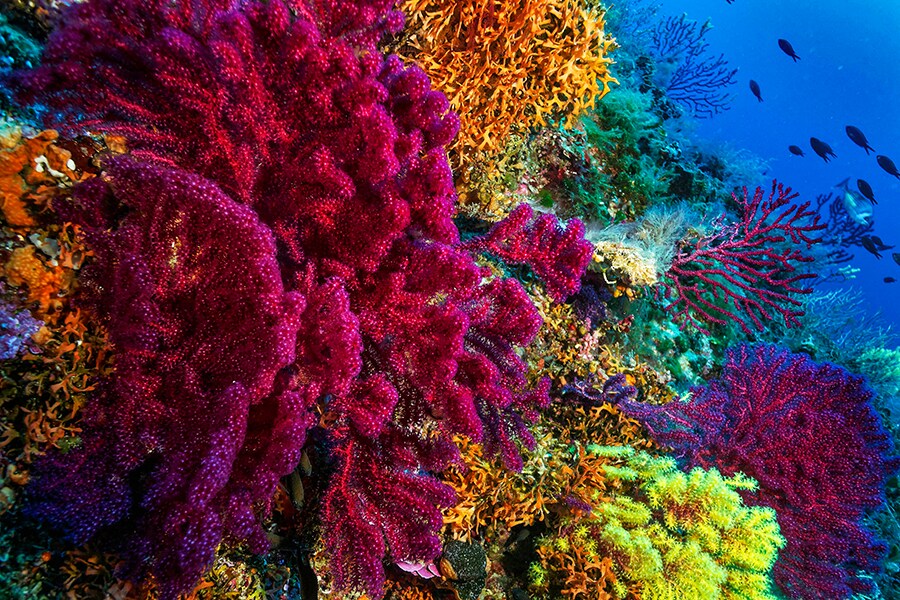
Researchers may have found a solution for protecting coral reefs
According to the authors of the work, these results could contribute to current coral reef conservation efforts, for example by highlighting the potential benefits of introducing microbes into coral reefs that can enhance coral responses to thermal stress
 According to this new study, genes identified in the microbiome of certain types of corals may play a role in the reefs' response to thermal stress and make them more resistant to climate change.
According to this new study, genes identified in the microbiome of certain types of corals may play a role in the reefs' response to thermal stress and make them more resistant to climate change.
Image: goran safarek / Shutterstock
How can we protect coral reefs from rising ocean temperatures? The solution may lie in their microbiome, according to new research by American scientists at Penn State University.
This new study identified genes in the microbiome (bacteria, fungi, viruses) of certain types of corals that may play a role in how reefs respond to heat stress. "Prolonged exposure to heat can cause ‘bleaching' in which photosymbionts (symbiotic algae) are jettisoned from the coral animal, causing the animal to die. We found that when some corals become heat stressed, their microbiomes can protect them from bleaching," explained Monica Medina, professor of biology at Penn State and co-author of the work.
The corals analyzed were collected near Puerto Morelos, Mexico. The researchers focused on three species: mountainous star coral (Orbicella faveolata), knobby brain coral (Pseudodiploria clivosa) and the shallow-water starlet coral (Siderastrea radians). Each of them has a different sensitivity to thermal stress.
The objective was to study the relationship between the overall ability of corals to withstand thermal stress and differences in gene expression patterns related to these metabolic activities. In the case of corals, this process is highly influenced by photosymbionts as they provide at least 90% of the coral animals' energy needs through photosynthesis. But, the scientists who led the work have extended their research to the whole organism of corals, called "holobiont," which includes coral animal, photosymbiont and microbiome.







